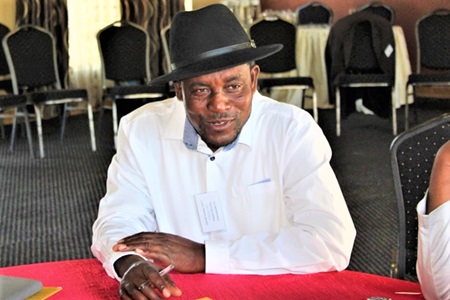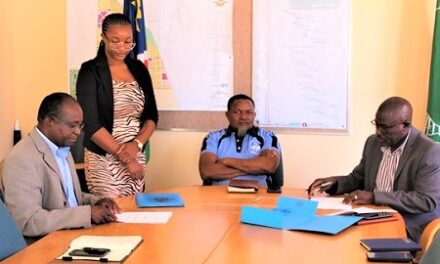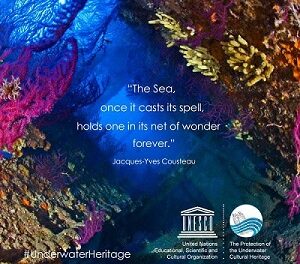
By Shivute Kaapanda |
Uukolonkadhi Traditional Authority is still unaware that an Access to Information Act has been passed.
This despite the fact that the Access to Information Act, Act 8 of 2022, was passed by parliament and signed by the late President Hage Geingob and published in the Government Gazette in December 2022.
Uukolonkadhi is one of eight subtribes of Aawambo people of northern Namibia. Situated in the far-western part of Omusati region, sharing a border with Kunene region, the area under the authority of Uukolonkadhi is also home to several other local tribes such as Ovandongona, Ovazemba and Ovahimba.
Uukolonkadhi consists mainly of two small communities: the Aaunda clan, who also live in southern Angola, and the Aakolonkadhi.
Unlike other Aawambo kingdoms, historically the Aakolonkadhi did not have a centralised system of traditional governance, but rather people from different Owambo kingdoms settled in the area which was known as a territory of the “fugitives” where no king had ever ruled.
Only in the early 1970s when Owambo became a self-governing territory in line with South Africa’s Bantustan policy was the chieftainship for Uukolonkadhi as a traditional authority introduced.
This history makes Uukolonkadhi one tribal authority territory which is home to more than one tribal group. This situation has over the years created a situation where one or two other tribal groupings have sought recognition as a separate traditional entity which should have full rights to its own communal land according to the Traditional Authorities Act.
As a result, unlike other Owambo traditional authorities, Uukolonkadhi Traditional Authority has for years faced challenges in dealing with those of its communities who challenge its authority over them.
Uukolonkadhi Traditional Authority was under the leadership of the late Chief Daniel Shooya since 1985 until his death late last year at the age of 100. The current leader is Mr Malakia Shoombe who is its spokesperson and acting chief. Mr Shoombe is also the Secretary of the Uukolonkadhi Traditional Authority, a position that he has held since 1996.
During the visit by Omutumwa newspaper to Uukolonkadhi Traditional Authority’s office at Onesi settlement, the newspaper was welcomed warmly by the staff.
Given the unique nature of Uukolonkadhi as a territory that is home to several tribal communities, some of which continue to reject the authority of Mr Shoombe, Omutumwa asked the spokesperson and acting chief how the Access to Information law will likely affect the operations of his traditional authority.
“Our office has not yet received information regarding such a law, therefore we are not officially aware of it,” said Acting Chief Shoombe. Shoombe stressed that even in his personal capacity he has no knowledge of the Access to Information Act.
“But we will welcome the ‘Access to Information’ if passed down to us since it is a public law,” he stated.
“We are a public office operating in the interest of the Namibian government and the Namibian people, therefore we will welcome this law as it aims at regulating all traditional authorities and Uukolonkadhi Traditional Authority is not an exception.”
Onesi settlement, where the office of Uukolonkadhi Traditional Authority is located, is some 45 kilometres from Ruacana, the only town in the territory of Uukolonkadhi. And with no access to newspapers, Mr Shoombe and his community rely mostly on radio for news and other information.
The Access to Information Act, Act no. 8 of 2022 is legislation that, once operational, will compel both private and public entities to open up and take full responsibility in ensuring that information concerning their operations is easily accessible to the public.
The Act is therefore a powerful tool in the hands of the citizens, the power to demand for their rights, the right to be informed.
In the photo: Mr. Malakia Shoombe, the spokesperson and acting chief of Uukolonkadhi Traditional Authority.

[NB. This article was produced with the financial support of the Namibia Media Trust, through the New Voices, New Narratives in Public Policy Discourse project. Its contents are the sole responsibility of Omutumwa and do not necessarily reflect the views of the NMT nor any of its partners.]






